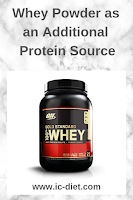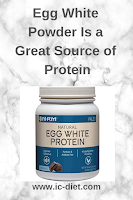I am often asked whether a person with interstitial cystitis can create a meal plan on a vegan diet. I always hesitate to answer because a vegan diet is challenging enough without the additional
restrictions of another special diet like that for IC, but I will try here.
Keep in mind, not all vegetarian diets are the same. Just to get everyone on the same page, here are some
definitions that can help:
- Vegetarian diets in general do not include meat, poultry, or fish, although some people who eat vegetarian meals may include fish occasionally. The term "vegetarian" is fairly generic and doesn't describe whether or not a person consumes other animal products such as milk or eggs.
- Lacto-ovo vegetarian diets avoid all meats, but DO include milk and eggs. You may also hear of people who will only use milk products but not eggs (lacto vegetarian), or eggs but not milk products (ovo vegetarian).
- Vegan diets don't include any animal products at all and, by nature, are the most restrictive and difficult to balance nutritionally. There is some debate whether products created by animals (like honey) should be included in a vegan diet.
In addition to various religious restrictions, many
people consume a vegetarian diet for the advertised health benefits of
higher fiber, and anti-oxidant consumption, and lower saturated fat.
Which Vegetarian Diet Works for You?
I don't usually recommend a strictly vegan diet for people with IC unless there is a strong religious or personal moral conviction against eating meat or other animal products. Besides the fact that foods that are generally a staple of a vegan diet like soy (including edamame, soy milk, and tofu), tomatoes, citrus fruits, and some legumes (fava and lima beans) can increase interstitial cystitis symptoms, many IC patients find that a consuming high quality protein each day helps them feel better.
Therefore, a good compromise to a vegan diet might be a
lacto-ovo vegetarian diet. People with interstitial cystitis generally find that eggs are
soothing when they are in a flare, and also, many feel that vanilla milk
shakes, warm milk with vanilla, or cottage cheese are soothing foods. Try adding egg white protein or whey protein to shakes and smoothies. You could also consider including fish one or two times a week. Some choose organic sources of eggs and milk/milk products to
minimize exposure to hormones, steroids, and other chemicals that could
stimulate your IC symptoms.
If you choose not to consume any animal products at
all, it becomes essential to "complete" your protein intake by consuming
the various types of plant based foods each day. A good rule of thumb is
to include something from each of the amino acid rich plant groups each
day: vegetables, legumes, grains, and nuts/seeds. Each of these food
groups supplies a different set of "essential amino acids." Combining
these essential amino acids helps ensure that you are getting the most
protein possible out of a vegan diet.
Julie Beyer, MA, RDN
Julie Beyer, MA, RDN
Author, Speaker, Patient Advocate
 Helping Yourself Is the First Step to Getting Well
Helping Yourself Is the First Step to Getting Well
For step by step guidance for creating your own personal interstitial cystitis meal plan, see: Confident Choices®: Customizing the Interstitial Cystitis Diet.
For some basic, family-style, IC bladder-friendly recipes, see: Confident Choices®: A Cookbook for Interstitial Cystitis and Overactive Bladder
For health care workers: Interstitial Cystitis: A Guide for Nutrition Educators 







